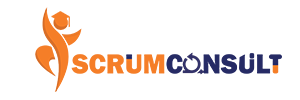Introduction
In today’s fast-paced business environment, one thing is clear: flexibility is no longer a luxury—it’s a necessity. The ability to bend without breaking, to adapt without losing momentum, is what sets thriving organizations apart from those struggling to keep up. As markets evolve and customer expectations shift, companies must embrace flexibility as a core business strategy.
The Cost of Rigidity Traditional business models, with their fixed plans, slow decision-making processes, and rigid hierarchies, are increasingly at odds with the realities of the modern world. These systems often delay innovation and prevent organizations from responding quickly to market demands. Companies that cling to old ways of working risk stagnation—or worse, obsolescence.
Look no further than once-dominant brands like Blockbuster or Kodak, which failed to pivot in time. Meanwhile, agile companies like Netflix and Amazon have set the standard for continuous evolution, customer responsiveness, and innovation.
Flexibility as a Strategic Advantage Flexibility means more than just responding to change—it’s about anticipating it, preparing for it, and having the right systems in place to act quickly. Businesses that invest in flexibility build a culture of adaptability, empower their teams to make informed decisions, and encourage continuous learning.
Agile frameworks such as Scrum, Kanban, and Lean offer structured ways to develop this flexibility. They provide teams with the tools to work in short cycles, gather real-time feedback, and iterate toward improvement. These frameworks aren’t just for tech teams—they’re applicable across industries.
Adapting and Adopting: A Dual Strategy Organizations that succeed don’t just adapt to external change—they proactively adopt new technologies, processes, and mindsets. This dual approach enables them to stay ahead of the curve and build resilience into their business models.
Adaptation helps businesses stay relevant.
Adoption helps them stay competitive.
How to Build Flexibility Into Your Business
- Encourage a Growth Mindset – Promote curiosity, learning, and experimentation.
- Empower Teams – Decentralize decision-making so teams can respond in real-time.
- Implement Agile Practices – Use frameworks like Scrum to foster collaboration and iteration.
- Invest in Learning and Development – Upskill teams to keep pace with change.
- Leverage Data for Decisions – Use real-time insights to guide strategy and adjustments.
Conclusion Flexibility is no longer optional—it’s your organization’s lifeline in an uncertain world. It’s the ability to pivot quickly, embrace new opportunities, and recover from setbacks faster than the competition. By embedding agility into your culture, processes, and mindset, your business doesn’t just survive change—it leads it.
Is your organization ready to make flexibility your strongest asset? Let’s talk about how Agile frameworks can help you build the resilience and responsiveness you need to thrive.
Looking to advance your career in Agile and Project Management?
Explore our comprehensive training programs at scrumconsult.com including:
Scrum Master Certification in Lagos
Agile Expert Courses
Project Management Training
Certified Product Owner Programs
Lean Six Sigma Green Belt & Black Belt Certifications
SMC, PSM, and CSM Certifications
Start your journey toward professional excellence today!
visit scrumconsult.com

